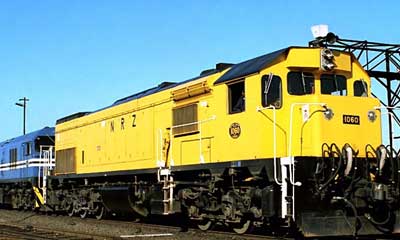
BY LEONARD MAKOMBE
WHEN the National Railways of Zimbabwe (NRZ) launched the electric train more than two decades ago, the long dreary journey between Harare and Dabuka, south of Gweru, became an enjoyable one.
Although long overdue considering that the first electric train was launched more than a century earlier in 1879 in Germany, it was a step in the right direction.
While the electric train would not travel the entire journey linking the country’s two largest cities, Harare and Bulawayo, the effort was commendable.
However, the electric locomotives have all been suspended after the overhead wires which are used to transmit power were vandalised.
Fanuel Masikati, NRZ public relations manager at the time, confirmed that they had suspended the electric locomotives as a result of extensive vandalism.
“Between six and eight of the electric automotives have been suspended as a result of vandalism and this means that we have to use locomotives which were meant for other routes to service the Harare-Dabuka route,” he said.
Masikati said apart from the massive vandalism of the overhead cables, the thieves were also targeting the poles supporting the wires as well as the machines that are used for control.
- Chamisa under fire over US$120K donation
- Mavhunga puts DeMbare into Chibuku quarterfinals
- Pension funds bet on Cabora Bassa oilfields
- Councils defy govt fire tender directive
Keep Reading
This is straining NRZ which is the backbone of the country’s transport sector as it is the most cost-effective mode when it is fully operational.
Replacing the vandalised infrastructure would cost an estimated US$10 million, Masikati said.
A number of industries, especially those that transport heavy or voluminous materials, are directly affected by the vandalism of NRZ equipment.
Agriculture, for example, relies heavily on railway transport for transportation of inputs such as seed and fertilisers because road transport costs three times more.
Profit margins in the agricultural sector are so narrow that farmers would prefer rail because it is the cheapest mode of transport and its infrastructure needs to be replaced to serve the nation.
However, before the country looks at replacing the vandalised infrastructure, NRZ and other companies which have been hit by vandalism should put in place measures to curb cases of cable theft.
“We need to address the issue of theft and vandalism before we replace the equipment because once someone is used to vandalism, then they would do the same to the installed wires,” Masikati said.
One of the major problems is that there is a ready market for the wire, in Zimbabwe and in the region.
Zesa spokesperson Fullard Gwasira said the vandalised equipment was usually used by the informal sector with “some contraband being targeted for the export market”.
One way of curbing cable theft is to heavily guard the infrastructure; this could be done by either private security guards or the security forces. An increase in security could deter cable thieves who have become daring to the extent of vandalising electrical cables within the high-density areas of Harare.
The other option is to have deterrent sentences for vandalising, buying or selling copper cables.
Masikati said NRZ, together with TelOne and Zesa, were lobbying for a total ban on trade in scrap copper as well as stiffer penalties for those found guilty.
Convicted cable thieves now serve a minimum of five years in prison and this is a result of lobbying by companies which have been hit by vandalism.
Gwasira said they were holding various anti-vandalism and anti-theft campaigns.
“We have also lobbied for the ban on trade in copper and aluminium trading as the only copper producing mine, Mhangura Copper Mines, closed down in 1999 and it defies logic where the vandals and thieves are sourcing their scrap copper,” said Gwasira.
It is important to note that the thieves also take advantage of the power cuts as they are only able to cut the cables when the lines are “dead”, thus improved power supply could also contribute towards the reduction in cases of cable theft.
NRZ has tried to reward members of the public who have reported cases of cable theft which lead to successful arrests.
Under this arrangement, a whistleblower gets a percentage of the total cost of the cable recovered.
Zimbabwe’s train journey may be going full circle if the sector reverts to steam as was suggested at the turn of the century when the country was faced with a massive shortage of fuel.
This would have meant going two steps back in terms of technological advancement since the country would have moved from the use of electricity to diesel and then to coal.
Steam engines are powered by coal and Zimbabwe argues that it has abundant coal resources compared to diesel which was scarce at that time as a result of low levels of foreign currency.
Two decades ago NRZ electrified 300km of railway line between Harare and Dabuka, but now all that has been reversed for personal enrichment.
l This story was first published in October 2009. It is being reproduced to raise awareness about the debilitating effects of vandalism on the country’s key infrastructure.










